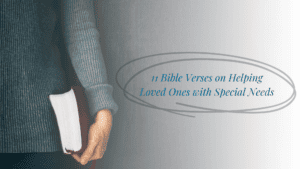“I’m glad your faith works for you, but can you really know whether or not the Bible is reliable? Wasn’t it written thousands of years ago? How do you know it hasn’t been translated and re-translated so much that it no longer says what it used to say?” These questions or variations of them are often asked about the Bible.
Rather than responding “just believe,” the Bible calls us to, “Always be prepared to give an answer to everyone who asks you to give the reason for the hope that you have” (1 Peter 3:15, NIV). Since Christ is the cornerstone of Christianity, and since what we know about Christ and God’s plan of salvation is found in the Bible, it is important that we take questions about the reliability of the Bible seriously. As a result, this article will look at the meaning of “reliability” in both the Old and New Testaments.
What does “reliable” mean?
Let’s first consider the meaning of reliable. In short, reliability means something is trustworthy. It can also mean that something is consistently good in its quality. In reference to the Bible, reliability has to do with whether or not what it contains – from ideas to history to geography and more – is trustworthy or not. If, for instance, the Bible is full of historical and factual errors or blatantly contradicts itself, it’s hard to trust it or view it as reliable.
While we will address these sorts of questions in other articles in this series,the question of the reliability of the Bible is addressed in this article primarily in relation to the manuscript and other evidence supporting the Old and New Testaments. Before getting to the Old Testament, however, our line of reasoning supporting the reliability of the Bible is best begun with the New Testament.
Is the New Testament Reliable?
The New Testament contains 27 books, although some are not books per se, but letters. The four Gospels – Matthew, Mark, Luke, and John – are key in establishing what we know about Jesus including his birth, ministry, teachings, death, resurrection, and more.
There are several lines of reasoning we can take in demonstrating the reliability of the New Testament and, specifically, the four Gospels. First, we can look at the number of manuscripts or fragments available. Second, we can compare existing manuscripts and fragments to see if they are reliable when it comes to what they report. Here we would look for serious contradictions, omissions, additions, errors, etc. Third, we can compare manuscript copies and fragments with copies we have today and find out if there have been significant changes or if the New Testament we have today is reliable. The approach outlined in these three points highlights some aspects of what takes place in the discipline known as textual criticism.
In the case of the New Testament, we have thousands of complete manuscripts and multiple thousands more fragments available. There are more than 5,000 copies of the entire New Testament or extensive portions of it. In addition, we have several thousand more fragments or smaller portions of the New Testament. If these numbers don’t seem like a lot, compared to other works of ancient history, the manuscript evidence and copies for the New Testament far outweigh manuscript evidence for other works. For instance, there are less than 700 copies of Homer’s Iliad and only a handful of copies of any one work of Aristotle.So when it comes to manuscript evidence, the New Testament definitely has numbers on its side.
It’s also interesting that within the early centuries of the Christian church a number of scholars quoted the New Testament. Amazingly, they quoted the New Testament so much that every single verse of all 27 books of the New Testament is quoted by these scholars with the exception of only 11 verses, all within a few hundred years of the beginning of the Church. We could also add the fact that much of the New Testament was written within just a few decades of the death and resurrection of Christ. First Corinthians, for instance, dates from the 50s – only twenty years or so after the death and resurrection of Christ. This is important because 1 Corinthians 15 contains key elements of the gospel message, emphasizing the importance of Christ’s resurrection, and claiming that more than 500 people had seen the risen Christ. People who would still have been alive at the time of the writing of 1 Corinthians would have been around to corroborate or criticize the claims made in the letter.
There are many other features substantiating the reliability of the New Testament documents. But what about the Old Testament?
Is the Old Testament Reliable?
The reason we began with making a brief case for the reliability of the New Testament is because of the claims it makes about the Old Testament. Jesus, for instance, made a number of claims supporting the reliability of the Old Testament documents. Jesus affirmed seven key points in relation to the Old Testament, as explained by Norman Geisler: “Jesus affirmed its divine authority … its imperishability … its unbreakability … its ultimate supremacy … its factual inerrancy … its historical reliability … [and] its scientific accuracy.” Matthew 5:17-18 sums up the approach Jesus took in confirming the reliability of the Old Testament:
“Do not think that I have come to abolish the Law or the Prophets; I have not come to abolish them but to fulfill them. I tell you the truth, until heaven and earth disappear, not the smallest letter, not the least stroke of a pen, will by any means disappear from the Law until everything is accomplished.”
Why is it important that we cite such passages demonstrating that Jesus accepted the Old Testament as reliable? Because, if the New Testament is reliable in its claims, then Jesus is who He claimed to be – God in the flesh, substantiated by His resurrection from the dead. As such, His remarks about the Old Testament are likewise reliable.
But what about manuscript evidence for the Old Testament? Space does not allow a thorough treatment here, but it is likewise incredibly accurate. Manuscripts that are part of the Dead Sea Scrolls, for instance, clearly show that our modern copies of the Old Testament are incredibly accurate.
Is the Bible Reliable? Based on the evidence, it surpasses all expectations for trustworthiness.




















